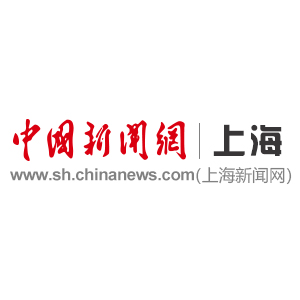Zhonghong Life Insurance Company (referred to as “Zhonghong Insurance”) and Fudan Development Institute jointly released the “New Longevity Journey for Sophisticated Populations in the New Economic Era” (referred to as the “Report”), concluding their three-year collaboration. The report continues the research framework of the 2023 “New Wealth Planning” and 2024 “New Pension Insights” studies, still using sophisticated populations as samples, with the “longevity journey” as the main theme, addressing both health prevention and wealth planning to provide systematic guidance for achieving high-quality longevity in the new economic era.
Based on the results of the “Manulife Asia Care Survey” and customer participation data from Zhonghong’s innovative MOVE platform, this series of reports innovatively focuses on “sophisticated populations,” outlining this group’s “nine high” profile: possessing high adequacy of pension security, high stability of family income and strong family responsibility, having high insurance needs and high self-motivation, equipped with high-quality medical services and high-level children’s education, pursuing high-performance financial planning and high-quality living.
This year’s report focuses on the “longevity journey.” Sophisticated populations maintain a rational attitude toward ideal lifespan, viewing physical, psychological, and financial health as the three pillars of high-quality longevity, and have already begun simultaneous planning from health prevention to wealth investment: averaging 2.14 insurance policies per person, with a 42.07% participation rate in the MOVE health management platform, both higher than the general population, demonstrating their strong willingness in pursuing economic security and proactive health management. Data shows that among sophisticated population samples, 97.74% plan to purchase additional insurance within two years, using insurance to simultaneously enhance protection and expand wealth, creating a “dual safety net” for their longevity journey.
Pursuing High-Quality Longevity: Planning and Freedom
Regarding primary expectations for retirement life in later years, over ninety percent of respondents did not prioritize “living longer,” instead placing greater importance on quality of life, dignity, independence, and autonomous decision-making. Respondents hope to actively plan their longevity stage, with nearly ninety percent expressing that their core expectation for the longevity phase is “transitioning from high-intensity full-time work to a more autonomous lifestyle.” They view retirement as an opportunity to restart life, pursuing unexplored interests and achieving idealized lifestyle transformations.
Although sophisticated populations recognize that physical, psychological, and financial health collectively determine ideal lifespan, their depth of understanding and balance vary. Specifically, respondents acknowledge the positive correlation between wealth, health, and longevity quality: they prioritize physical health management, particularly focusing on major illnesses; show clear wealth priority tendencies, emphasizing its direct protection for life, and generally agree that “having insurance coverage allows me to live worry-free during retirement/old age.” However, proactive investment in daily prevention and adjustment of mental health remains insufficient.
Health Prevention Shows Results, Evolving Needs Require Follow-up
Research sample analysis reveals that sophisticated populations view insurance as an economic reflection of risk prevention, with average policy holdings reaching 2.14 per person, significantly higher than the general population. Among them, the 35-44 age group, experiencing dual peaks in career and family while approaching health critical points, combines crisis awareness with economic capability to show the strongest health management commitment: leading in average policy holdings, MOVE platform participation rate, average MOVE logins per person, and health benefit usage frequency.
The study found interconnected effects between health prevention awareness and risk prevention/longevity management economic behaviors. Data indicates that each additional step challenge completed by MOVE participants increases their policy holdings by 0.24%, with this effect stronger among younger groups (25-44 years, 0.29%) and females (0.28%). Respondents also select health management behaviors based on personal health goals and lifestyle habits, regularly monitoring key indicators, showing basic alignment between awareness and action.
Encouragingly, health prevention has demonstrated diversified leverage effects in risk reduction. Both the average claims per person and annual claims after first claim among sophisticated populations are lower than the overall research sample, with this gap widening with age. Specifically, each additional step challenge completed reduces average claims per person by 0.73%, with males showing 0.97% reduction, and the highest marginal benefit among seniors aged 60+ (1.80% reduction).
Over ninety percent of respondents self-assessed that their preventive measures sufficiently support health/extend healthy lifespan to a considerable degree, showing optimistic attitudes, but existing measures (consulting psychologists, annual health check-ups, etc.) may lack depth and sustainability. Additionally, facing new longevity needs such as chronic disease management, long-term care, and cognitive health, more targeted management tools like long-term care insurance and cognitive training programs should be supplemented.
<p




